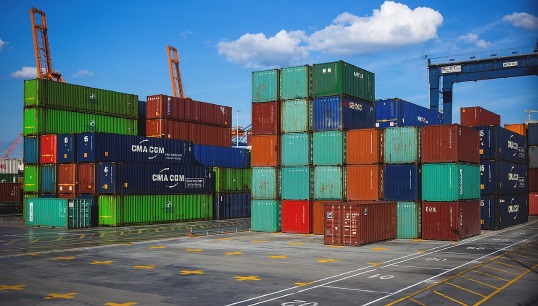
On 18 April, two BBC podcasts, The Food Chain and Business Daily, discussed corruption at ports and the impact this has on seafarers.
Former master mariner Stephen Gudgeon, who spent over four decades at sea, revealed the stressful encounters seafarers often face with port officials. Gudgeon disclosed instances where port officials demanded bribes, such as cartons of cigarettes, to facilitate smooth operations for ships entering and leaving ports. Refusal to comply with such demands can lead to unwarranted arrests and fines, as Gudgeon experienced first-hand.
'Suddenly there was a problem with the paperwork and they took me ashore at gunpoint', he told the BBC, 'I was interviewed by two officials in an empty room with just a chair which I was locked into and, it was when they when they said to me, "would you like us to inform your family of your detention?" that I really got quite worried.'
When Capt Gudgeon was contacted by the owner of the ship he was on, they asked if the ship had been delayed - and had no questions about his wellbeing after the very distressing incident.
Podcast host Ruth Alexander highlighted the predicament seafarers face: comply with extortionate demands and risk disciplinary action from the shipping company or refuse and endure delays and threats. The Maritime Anti-Corruption Network (MACN) reported over 60,000 incidents across 1,000 ports worldwide, emphasising the urgent need for unified action against corruption.
Beyond financial extortion, corruption can compromise food onboard, with port officials pilfering food intended for crew consumption and corrupt captains exploiting their positions for personal gain. 'On one occasion, I remember saying to [port officials] "this is food for my crew", and they expected the crew to buy more food to be able to get from one port to the next', Capt Gudgeon said.
He also commented that food may be entering the vessel that is of lower quality and quantity than what was ordered, but crews still have to pay for the higher quantity and levels of quality, 'and there might be a brown envelope which is handed to the captain [who is pocketing some of the food budget]'.
Despite regulatory frameworks like the Maritime Labour Convention, enforcement remains a challenge. Organisations like the International Transport Workers Federation (ITF) provide support to seafarers facing corruption.
Efforts to combat corruption and improve seafarer welfare include helplines and support desks established by industry associations like MACN. However, these initiatives are limited in scope and require broader cooperation from companies and nations.
- Listen to Nautilus Council member Captain Stephen Gudgeon in the BBC World Service documentary Hungry at sea (available until April 2025). Also interviewed for the documentary is Professor Helen Sampson
Tags
More articles
TUC creates draft bill to ensure worker protections in the age of AI
The TUC has published a draft bill that lays out a clear plan for the regulation of AI in the workplace, in order to ensure transparency and fairness for workers, and rights to redress against the ethical dilemmas of 'black box' [automatic algorithmic] management decisions.
Recognising exceptional service to seafarers: nominate someone who has helped you
The Merchant Navy Welfare Board (MNWB) is calling on the maritime sector to nominate their unsung heroes providing exceptional service for seafarers for its new-look annual awards.
